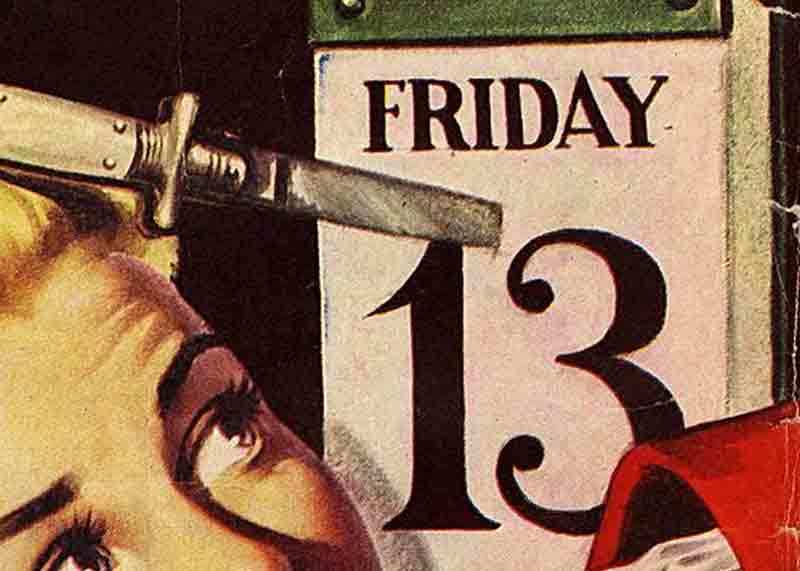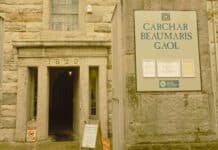
CLAIRE BARRAND tells us about Friday the 13th superstitions from Wales…
It is Friday 13th again, and whether you believe in the western superstition that the day is bad luck or think the notion of evil omens based on the Gregorian calendar is a load of old codswallop, most likely, you will have heard of many common superstitions.
You may consciously or subconsciously avoid walking under ladders for example, or perhaps you have a lucky charm on your desk?
In Wales, we have many unique superstitions, many of which are still upheld in rural communities today.
I have chosen 13 of the darkest and creepiest that you might want to avoid this Friday the 13th…
Friday the 13th Superstitions
- In South Wales, Friday is associated with bad luck. Miners would refuse to start any new projects on a Friday and pit men would stay away from the mine on Good Fridays throughout Wales.
- Beware of Corpse Candles: Spectral candles seen by roadsides foretell of impending death. Read more here.
- The smell of flowers is often thought to predict doom. Invisible “death flowers” gave off such strong scent, that miners in the Port Talbot area of South Wales heeded this superstition, and many stayed at home. That day 87 miners died in a massive explosion.
- Watch out for birds. Pigeons, Robins and Doves flying over a pit were believed to be foretelling a disaster. Dubbed “Corpse birds”, they were seen before a massive explosion at Senghennyd Colliery in 1913 in which 440 miners were killed. Owls screeching over the house were also seen as an omen and known as “Corpse birds”.
- Look out for the squinting woman! If a miner passed a woman with a squint on his way to work, he would turn back and go home! It is a wonder any of these guys ever made it to work!
- Hide the cat! On the day’s miners were to be selected for new positions at the mine, women would hide the family cat in an (unlit) oven to avoid her husband being chosen for the most dangerous. On another note, cats were not permitted to enter the room where a dead body lay before burial as it was believed that cats were out to steal their souls!
- Wash the linen of the deceased immediately but not before they are buried for the fear was that they will not rest in their grave.
- When someone was sick, a handful of green nettles would be placed under their bed. If the nettles kept green, that was seen to be a good sign that the person would recover.
- If someone shivers while sat before a roaring fire, it was said that “the spirits are searching for your grave”!
- It is considered to be terrible luck if you pick a flower that grows on a grave. Anyone doing so will inevitably die or can expect disaster in the family before the year is out.
- Beware of the Tolaeth. An ominous sound, unearthly and heard by undertakers just before an order for a coffin would be made. Shuffling, tapping and unearthly grunting sounds heard in the night are said to be that of the Tolaeth. Even today carpenters in Wales have been known to claim that they are forewarned of death by hearing strange rappings in the timbers of the workshop.
- The Cyhiraeth is associated with the Glamorganshire area in particular and closely related to the Irish banshee. It is said to be a doleful cry heard three times getting weaker with each call, and coming from the home of a sick person heard from a distance. Said to sound sad and wailing or like a smothered shriek or even a rushing sound like bird’s wings, this weird noise is meant to be a ghostly spirit foretelling death.
- Yarrow is supposed the be the death flower in Wales and in some parts of Glamorgan the plant is not permitted inside the house for it is assumed that a funeral will follow. Yarrow has many healing properties, but perhaps this superstition was derived from the fact that during the Middle Ages yarrow was purported to be able to assist in summoning the devil and driving him away and it was used in complex Christian exorcism rituals.







